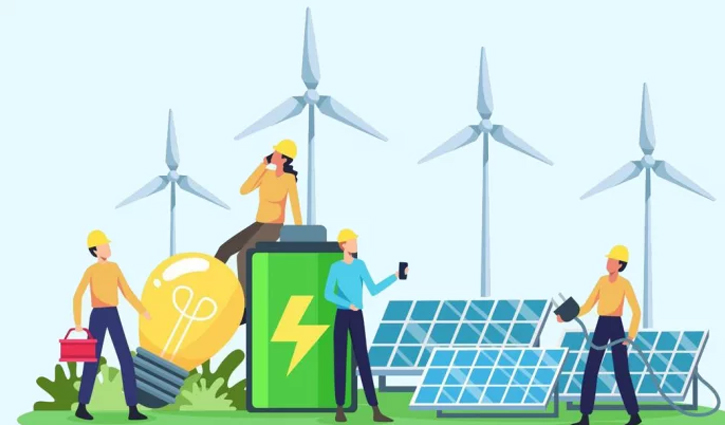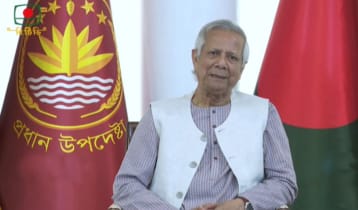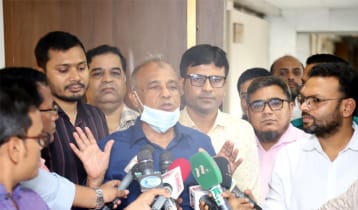Complexity is main obstacle to renewable energy sector
Hasan Mahmud || risingbd.com

The government claims Bangladesh has achieved a success in distributed renewable technologies such as solar home systems, mini-grids, and solar irrigation systems. But experts say the achievement of 1000 megawatt capacity in the last 14 years in this sector did not get a success. The government policy has failed, it needs to be reconsidered.
They say that the expansion of this sector has been blocked due to bureaucratic complications and slowness in service delivery. However, the government has also given tax breaks in addition to various measures for the development of this sector.
Bangladesh is keen to use 30 percent renewable energy by 2030 and 40 percent by 2041. There is also a huge potential for foreign investment in this sector. Bangladesh has investments in the energy sector. In the last 13 years, there has been about 30 billion dollars of foreign investment in the country's energy sector. However, most investments have been focused on fossil fuels.
Meanwhile, private research institute South Asian Network on Economic Modeling (SANEM) has identified four major controversies or misconceptions in the renewable energy sector. These are - waste management after the end of the 'life cycle' of the solar panels, the biggest hurdle is the scarcity of land, adding the cost of batteries to solar technology will not be cost-effective, and is it possible to generate 24,000 megawatts of electricity from renewable energy by 2041!
SANEM says Bangladesh has set a target to reduce carbon emissions by achieving 40 percent of electricity generation from clean energy sources. However, while the global trend towards renewable energy success is positive, Bangladesh has yet to show any significant progress.
However, state minister for power, energy, and mineral resources Nasrul Hamid commented that land, financing crisis and rising global interest rates are hindering the expansion of renewable energy in Bangladesh. He said the old grid in the power sector is making the transmission and distribution system expensive. Efforts to accelerate power trading need to be continued.
It is said that renewable energy will be the most affordable in the future. Even cheaper than gas. Bangladesh plans to generate 40 percent of its electricity from renewable sources by 2040. However, their performance is far below average. None of the 13 renewable energy power plants came on schedule. 4 are late or in partial production, and 9 can still go into production.
Concerned say that in the first 3 months of the current financial year, LNG import policy decision has been given more importance. A long-term LNG import agreement has been signed with Qatar. Two more FSRUs (Floating Gas Re-Gasification Units) have been contracted to set up. 20 new decisions have been made for renewable energy. Besides, emphasis has been laid towards the uninterrupted power supply.
Meanwhile, the Center for Policy Dialogue (CPD) outlines eight proposals to increase foreign investment in renewable energy. According to the organization, political stability, infrastructural development, skilled manpower, investment-friendly incentives are required in a country to attract foreign investment. Although the Bangladesh government has given various tax breaks in this sector, it faces many complications including bureaucratic complications, slowness in service delivery.
The organization says there is a growing interest in using renewable energy to reduce the use of fossil fuels around the world. Because there is no alternative to combating the adverse effects of climate. Carbon emissions must be reduced to reduce the rate of global warming. Otherwise, all countries will have to face the dire threat of climate change. Many people think that renewable energy is a new concept. However, this is not true. Renewable energy sources like solar and wind energy have been used since ancient times.
Professor M. Tamim, Special Assistant to the Chief Advisor of the former Caretaker Government on Energy, said that the government has given importance to renewable energy since 2010. But it is mainly in the private sector. Acquiring 1000 MW capacity in the last 14 years in this sector cannot be a success, it is a clear failure. This requires joint public-private partnership.
Dhaka/Hasan/Nasim


















